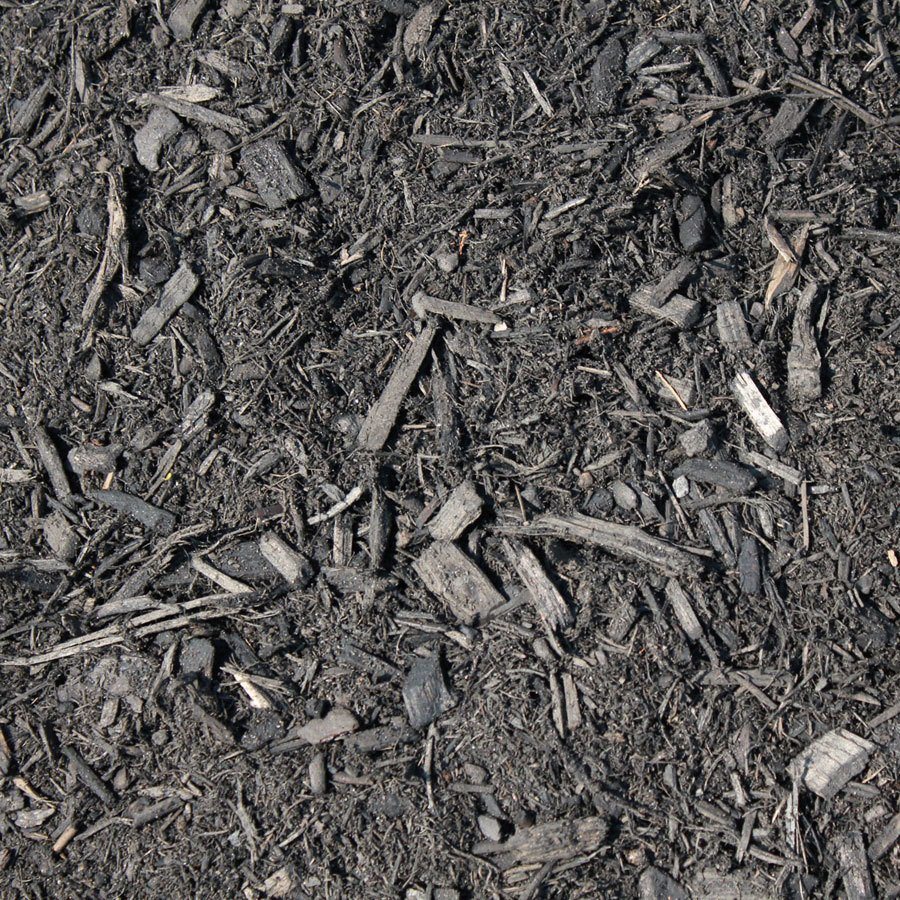
Organic Mulch
Organic mulches will be more effective for the heath of the plant over using synthetic mulches. Remember that all organic mulches will decompose some faster than others, so it will be necessary to replace it after a period of time.
- Bark: Shredded off of trees at a lumber mill. After shredded it is grind up into finer size pieces and screened, which will be easier to work with in the landscape. Bark as it decomposes will change color.
- Pine/Spruce
- Brown Hemlock: Orange red
- Bark chips or chunks: bark that has not been shredded
- Straw: Stems and stalks of certain grasses, used as either a cover crop or the by-product of a food source for animals.
- Salt Marsh Hay: Harvested off of salt marshes. Since it is a grass that requires marsh like conditions to survive it should not germinate in your garden.
- Pine Needles: Plentiful crop available in the northeast. Having a high concentration of acidity, when applied will lower the pH in the soil.
- Wood Chips: Branches and stems from trees that have been trimmed and put through a chipping machine which are pulverized into small fragments. Wood takes longer to decompose and can remove nitrogen from the soil. There are two different forms of mulches sold that are created with wood chips.
- Playground Mulch
- Dyed or colored wood chips
- Peat Moss: Dredged from bogs. Having the ability to absorb large amounts of moisture. Decomposed peat moss will greatly improve the soil conditions. When it dries out it can form a hard crusty mat.
- Cocoa Bean Hull: The by-product from cocoa of Hershey Pennsylvania. The aroma of chocolate with its dark color is divine.
- Buckwheat Hulls: Tiny hulls when sprinkled with water it glitters. Be careful where you may apply this mulch because it may blow in the wind, when dry. My opinion is this mulch is best for herb or perennial gardens.
- Compost: Anything that was alive at one time that has the ability to decompose such as leaves and grass clippings with the addition of manure sitting in a pile and rotated occasionally will become over a period of six months the final product compost. Excellent soil conditioner and having a dark color it will be attractive. I doubt it will minimize the weeds in your garden beds.
- Decorative Stone: Stone has the ability to disintegrate with the help of temperature, weather and the seasons ahead. However it will take forever. Stones from different areas of the country have different colors. Stones can absorb solar radiation which can create a hot soil, which can burn roots at the surface or dry out the soil. Sunlight may reflect off light colored stone and reflect onto the foliage of plants causing desiccation. Weeds can grow more effectively through stones then any of the other mulches. Stones can be rough or tumbled to add different textures to the landscape
Synthetic Mulch
Synthetic mulch is not natural and it will not usually decompose and may de detrimental to plants.
- Black Plastic: Initially used by vegetable growers has been converted in to the home garden, the landscape bed. When used in the landscape it can harm plants by not allowing air and water to penetrate the soil.
- Landscape Fabric: Where plastic does not allow air or water, landscape fabric will. However it does become inconvenient when additional plantings are necessary. The landscape fabric must be covered to prevent UV decomposition. It has been ample to minimize weed growth below it but not on top of it. Bark Mulch with the landscape fabric will minimize weeds to approximately 90-95%. Mulch by itself may be 75-85%. We sell Typar Landscape Fabric and Fabriscape


